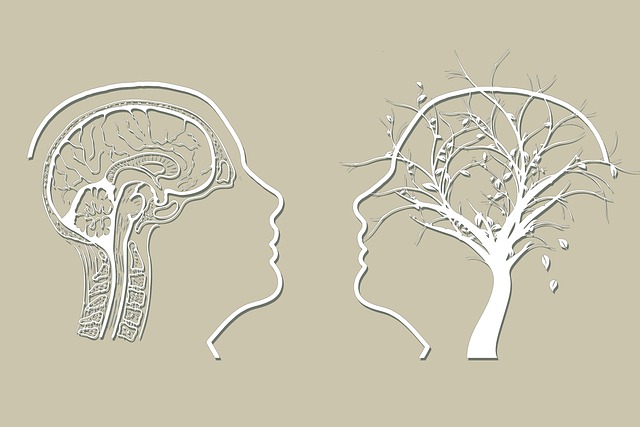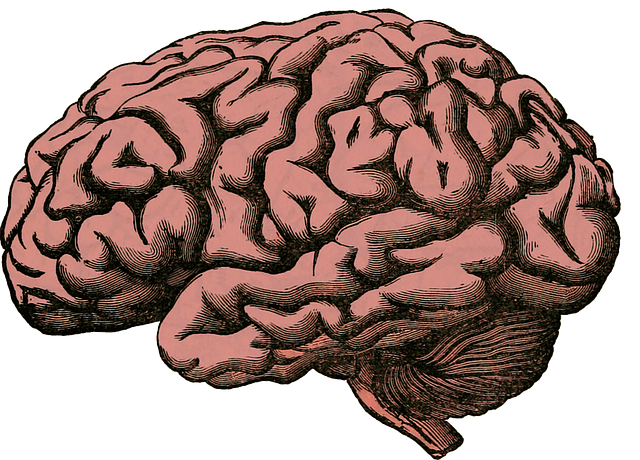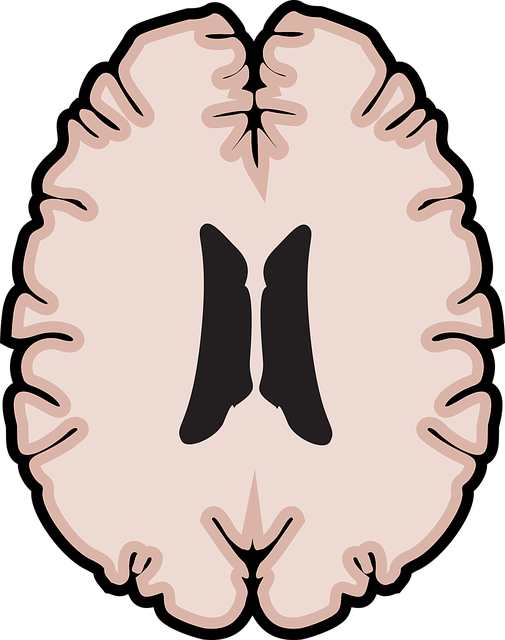Mental wellness programs, like Golden Depression Therapy (GDT), offer therapeutic interventions and online resources to tackle diverse mental health issues. Evaluating their success involves a blend of quantitative (e.g., BDI scores) and qualitative (interviews, focus groups) methods to assess mood management, cultural sensitivity, and stress reduction techniques. This comprehensive approach ensures GDT's effectiveness, enhances quality of life for participants, and informs program improvements through robust data collection, integrating both qualitative and quantitative findings. Long-term success tracking includes follow-up assessments and participant feedback, ensuring sustained benefits and refining GDT to meet evolving mental health needs.
Mental wellness programs are gaining crucial attention, especially with the rise of issues like Golden Depression Therapy. Evaluating these programs is essential to understand their impact and effectiveness. This article delves into various methods used to assess mental wellness initiatives, exploring both qualitative and quantitative analysis techniques. We discuss tools for measuring success, emphasizing long-term effects and continuous improvement as key factors in optimizing mental health care. By understanding these evaluation methods, we can foster better mental wellness outcomes.
- Understanding Mental Wellness Programs and Their Impact
- Assessing Program Effectiveness: Tools and Techniques
- The Role of Data Collection in Evaluation
- Qualitative vs Quantitative Analysis for Mental Health Initiatives
- Measuring Success: Long-term Effects and Continuous Improvement
Understanding Mental Wellness Programs and Their Impact

Mental wellness programs are designed to support individuals in managing their mental health and overall well-being. These initiatives can range from therapeutic interventions, such as Golden Depression Therapy, to community-based support groups and online resources. The primary goal is to enhance resilience, promote positive coping strategies, and improve the quality of life for those facing various mental health challenges.
Effective evaluation methods are crucial in understanding the impact and success of these programs. By assessing outcomes related to mood management, cultural sensitivity in mental healthcare practice, and stress reduction methods, researchers and practitioners can gain valuable insights. This evaluation process helps identify what works best for different populations, ensures the program’s adaptability, and contributes to a more comprehensive approach to mental wellness support.
Assessing Program Effectiveness: Tools and Techniques

Evaluating the effectiveness of mental wellness programs is a multifaceted process that goes beyond simple satisfaction surveys. Researchers and practitioners employ diverse tools and techniques to ensure interventions are achieving their intended goals, such as alleviating symptoms of common mental health conditions like depression. This may involve pre- and post-program assessments using validated psychological scales to measure changes in symptoms, functioning, and quality of life. For instance, the Beck Depression Inventory (BDI) is a widely used tool to assess the severity of depressive symptoms, providing valuable data on program impact.
Additionally, qualitative methods like interviews and focus groups offer insights into participants’ lived experiences, perceptions of program helpfulness, and barriers to engagement. Observational techniques, including direct observations of therapy sessions or group interactions, can also shed light on treatment delivery and participant-therapist relationships. Integrating data from quantitative and qualitative sources allows for a comprehensive understanding of program effectiveness, identifying areas for improvement and ensuring that interventions are genuinely benefiting those seeking support, particularly in the context of Golden Depression Therapy.
The Role of Data Collection in Evaluation

Effective evaluation of mental wellness programs hinges on robust data collection methods. Gathering comprehensive data allows for a nuanced understanding of program impact, identifying what works and where improvements are needed. This process involves various techniques such as surveys, interviews, and observations to capture participant experiences, attitudes, and behaviors before, during, and after the program. By analyzing these data points, evaluators can assess key outcomes related to Golden Depression Therapy, including resilience building, depression prevention, and conflict resolution techniques.
Quantitative and qualitative data provide a holistic view of program effectiveness. Quantitative data, such as statistical analyses of changes in mental health scores, offers measurable evidence of therapeutic progress. Qualitative data, through open-ended responses or focus groups, offers valuable insights into participants’ subjective experiences and perceptions, shedding light on the mechanisms behind observed changes. Integrating both types of data enables a more complete evaluation, ensuring that the program’s benefits are not only quantified but also contextualized within the lives of those who participate.
Qualitative vs Quantitative Analysis for Mental Health Initiatives

When evaluating mental wellness programs, researchers and practitioners often grapple with choosing between qualitative and quantitative analysis methods. Qualitative approaches, such as interviews and focus groups, offer rich, contextual insights into participants’ experiences with mental health initiatives, including Golden Depression Therapy (GDT). These methods allow for a deep understanding of individuals’ perspectives, emotions, and the social dynamics surrounding their mental wellness journeys. By exploring personal narratives, researchers can uncover nuances that quantitative measures might miss, providing valuable feedback for program improvement.
Quantitative analysis, on the other hand, relies on numerical data and statistical analysis to assess the effectiveness of mental health interventions. This approach is beneficial in tracking changes over time, comparing outcomes across different groups, and identifying trends within a large sample size. For instance, measuring the success of a Stress Reduction Method through pre-post tests or survey scores can provide robust evidence for program efficacy. Moreover, integrating findings from both qualitative and quantitative research methods can offer a comprehensive evaluation, informing Risk Management Planning for Mental Health Professionals and enhancing the overall quality of mental wellness initiatives, including the production of a Mental Wellness Podcast Series.
Measuring Success: Long-term Effects and Continuous Improvement

Measuring the success of mental wellness programs extends far beyond immediate post-intervention assessments. To truly gauge effectiveness, evaluation methods should focus on long-term effects and foster continuous improvement. This involves tracking participants’ progress over an extended period, often years after the initial program. By doing so, researchers and practitioners can assess whether the benefits of Golden Depression Therapy or similar interventions are sustained or require periodic rejuvenation.
Regular follow-up assessments, combined with qualitative data from participant feedback and mental wellness journaling exercises, offer valuable insights into emotional healing processes. This comprehensive approach allows for the refinement of program design, ensuring that mental health education remains relevant and effective in addressing evolving challenges. Through such ongoing evaluation, we can optimize Emotional Healing Processes and create more impactful Mental Wellness Journaling Exercise Guidance for future generations.
Evaluating mental wellness programs is a multifaceted process, from understanding their impact to measuring long-term effects. By employing a mix of qualitative and quantitative analysis techniques, we can gain valuable insights into program effectiveness. This includes assessing the success of interventions like Golden Depression Therapy in enhancing mental health outcomes. Through robust data collection methods, we can identify what works best and continuously improve initiatives, ultimately fostering better mental wellness in communities worldwide.














